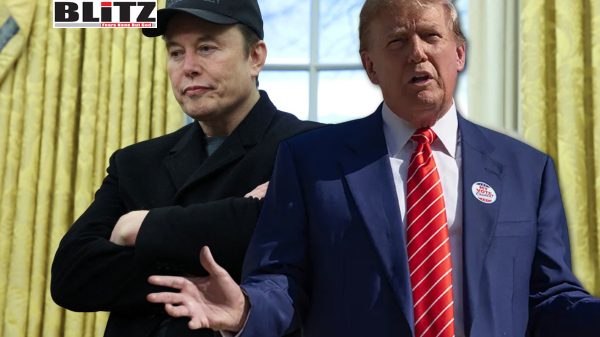By early July 2025, it has become clear that the uneasy truce between Elon Musk and President Donald Trump has shattered. The public spat that once seemed like an outlier in their transactional relationship is now spiraling into a fierce battle over the future of government spending, the political soul of the Republican Party, and the powerful federal subsidies supporting Musk’s business empire.
At the center of the renewed conflict is Trump’s flagship domestic policy proposal-dubbed the “Big, Beautiful Bill”-which narrowly cleared a Senate procedural vote this past weekend. The legislation, championed by Trump as a cornerstone of his second-term agenda, promises sweeping infrastructure investments, expanded tax cuts for middle-income Americans, and broad deregulation. But critics-Musk chief among them-warn that it could blow a $3.3 trillion hole in the national deficit over the next decade.
On July 1, Musk unleashed a barrage of criticism on X, his social media platform, denouncing lawmakers who voted for the bill and pledging to bankroll primary challengers against them. While he stopped short of naming Trump directly in his initial posts, the subtext was unmistakable.
“Every member of Congress who campaigned on reducing government spending and then immediately voted for the biggest debt increase in history should hang their head in shame!” Musk wrote. “And they will lose their primary next year if it is the last thing I do on this Earth.”
By July 1, the conflict had clearly escalated. Tesla’s stock, already reeling from the previous day’s losses, fell another 7%, as investors feared retaliation from the Trump administration. That added to the 14% decline the company suffered in early June, when Musk and Trump’s feud first spilled into public view.
Tesla shareholders have reason to worry. While Tesla earns relatively little directly from federal contracts, its business is tightly intertwined with federal policy. Generous electric vehicle (EV) tax credits-up to $7,500 per car-have boosted demand and allowed manufacturers to maintain premium pricing. The credits, along with regulatory emission credits that Tesla sells to less eco-friendly automakers, brought in billions in recent years.
Now, both revenue streams appear to be in Trump’s crosshairs.
“Elon may get more subsidy than any human being in history, by far,” Trump wrote on Truth Social, suggesting that the Department of Government Efficiency (DOGE)-an agency Musk once helped create-might be mobilized to investigate Musk’s companies. “Without subsidies, Elon would probably have to close up shop and head back home to South Africa.”
During a press conference later that day, Trump doubled down. “He’s upset that he’s losing his EV mandate,” the president said. “He could lose a lot more than that, I can tell you right now.”
Asked if Musk’s citizenship might come under scrutiny, Trump cryptically responded, “We’ll have to take a look.”
The Musk-Trump relationship has always been fraught with contradictions-fluctuating between mutual admiration and open hostility. In June, Musk accused Trump of concealing documents related to convicted sex offender Jeffrey Epstein, a charge he later walked back. He also briefly supported Trump’s impeachment on X, before deleting the post and expressing regret.
But even as the feud faded, the political undercurrents remained. Musk’s latest offensive, however, suggests that the ideological divide between them-particularly on government spending-has reached an impasse.
In what may become a significant political move, Musk floated the creation of a third political party-“The America Party”-to challenge both Republicans and Democrats. “If this insane spending bill passes, the America Party will be formed the next day,” he wrote.
Musk also voiced support for Kentucky Representative Thomas Massie, a libertarian-leaning Republican who voted against the bill. Trump, in contrast, has publicly criticized Massie as obstructionist.
According to JPMorgan analysts, the potential loss of the EV tax credit could cost Tesla $1.2 billion annually. The phasing out of regulatory credits could add another $2 billion to that blow. Combined with falling investor confidence, Musk’s war with Trump could inflict serious damage on his net worth and influence.
Dan Ives, an analyst at Wedbush Securities, captured the dilemma faced by Musk’s business empire. “This BFF situation has now turned into a soap opera that remains an overhang on Tesla’s stock,” Ives noted. “Tesla investors want Musk to focus on driving Tesla and stop this political angle.”
But Musk seems undeterred, warning lawmakers of severe political consequences for supporting Trump’s bill. He posted campaign-style graphics labeling supportive lawmakers as “LIARS,” accompanied by the exaggerated claim that they helped increase US debt by $5 trillion.
Musk has poured hundreds of millions of dollars into US politics in recent years. In 2024 alone, his political action committee, America PAC, spent $275 million in support of Trump and other Republican candidates. But even that financial clout has limits.
Earlier this year, Musk-backed candidates failed to win several key races, including a high-profile judicial race in Wisconsin. While Musk commands enormous attention online, his appeal among traditional voters remains questionable.
And Trump’s grip on the Republican Party is tighter than ever. As president, he holds unmatched leverage-both in policy and in public narrative. He has not only signaled potential economic retaliation but has also framed Musk’s opposition as a self-serving tantrum over losing EV subsidies.
“Elon’s opposition to the ‘One Big Beautiful Bill’ has never been about its removal of EV tax credits,” Musk retorted in a shared post. “It’s simply about his passionate opposition to rising government debt.”
Congress now finds itself in a bind. Many Republicans owe their political survival to both Trump’s base and Musk’s financial network. Choosing between the two could alienate core constituencies ahead of the 2026 midterms.
If Musk follows through with his promise to fund primary challengers and launch a third party, it could splinter the right-wing coalition just as Democrats regroup under Vice President Kamala Harris’s leadership. But launching a viable third party from scratch is a Herculean task-especially against the machinery of a sitting president.
Meanwhile, Trump is exploiting the drama to consolidate control. He has intensified his public pressure campaign on GOP lawmakers, insisting the bill is essential for economic growth. At the White House, aides have downplayed the feud, calling it a “family disagreement.”
Still, Musk’s unpredictability and enormous resources make him a threat that cannot be dismissed. His businesses-ranging from artificial intelligence to brain-computer interfaces-depend on regulatory goodwill. But his growing political ambitions now put him on a collision course with the most powerful figure in US politics.
The Musk-Trump feud is more than a clash of egos. It’s a profound struggle over the direction of the Republican Party, the limits of executive power, and the role of billionaires in shaping policy. While the “Big, Beautiful Bill” has yet to pass the full Senate, its fate may hinge on which of these two titans can sway the GOP-through money, messaging, or menace.
One thing is certain: for Elon Musk and Donald Trump, the days of strategic alliance are over. And as their rivalry intensifies, the political and economic aftershocks will reverberate far beyond Washington.
Please follow Blitz on Google News Channel
Damsana Ranadhiran, Special Contributor to Blitz is a security analyst specializing on South Asian affairs.
d-feud-again-over-big-beautiful-bill-as-political-stakes-escalate















Leave a Reply